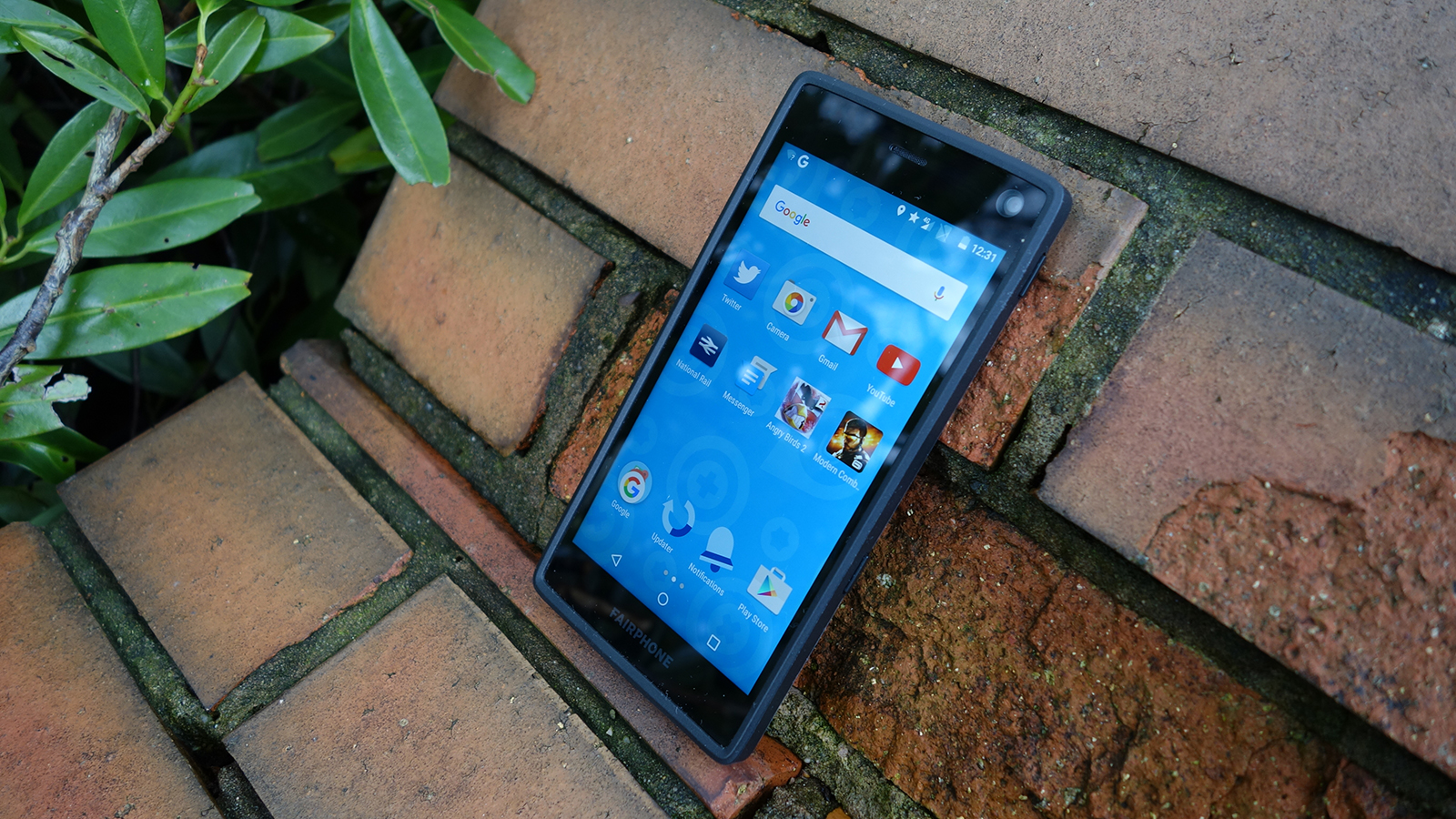Why you can trust TechRadar
Do you want a phone that's kind to the people that made it and the planet we all live on? That's the fundamental question when it comes to the Fairphone 2, and the usual considerations – specs, design, performance – take second billing.
As a result it's hard to review the Fairphone 2 in the usual way: without those ethical credentials it would barely register a blip, but if you consider the overall package then you're looking at a whole new approach to smartphones.
We liked
The philosophy behind the phone, which we've mentioned several times already – no one else is really as committed to these ideals as Fairphone is. The exposed back is very cool, and DIY tinkerers will love the ease with which you can get at the phone's innards.
The skinned version of Android is a definite plus as well, and a somewhat surprising one. Fairphone has done a great job of adding some intuitive extra features on top of Google's OS without ruining the core experience, or making them feel like bloatware.
Fairphone is emphasising the ease with which you can repair the phone, but the idea of modular upgrades is appealing as well. If Fairphone or one of its partners can make this happen then it's another reason to give this handset serious consideration.
We disliked
It's just not a very powerful or very svelte phone, which you may or may not give two hoots about. Running intensive apps and games can cause noticeable lag when you compare it to the latest and greatest phones on the market, some of which don't cost that much more.
Hopefully the high price won't put too many people off: if you think about it logically, you're spending more to save more, but of course that's not the attitude most people walk into their local phone shop with. The price shouldn't be an issue, but it might be for some.
Sign up for breaking news, reviews, opinion, top tech deals, and more.
The camera is particularly uninspiring (is an upgraded module on the way? I hope so) and, translucency aside, the plastic backing cover-come-case is a really fiddly bit of kit that feels a bit too much on the cheap side, and does nothing for the looks of the Fairphone 2.
Final verdict
I like what Fairphone is doing here, and let's hope other phone manufacturers sit up and take notice. It can certainly hold its own in the middle of the Android market, and when you add in everything else that the phone stands for you have a very attractive proposition.
For me though, the power and design quality of the phone just aren't high enough at the moment. That may sound like a rather shallow perspective to take, but for many people a smartphone is a tool as well as a toy – it needs to be fast, and responsive, and capable of taking some top-quality photos.
There is a case to be made for casual users choosing the Fairphone 2 over any other mid-range Android handset, provided they can be convinced to part with a big chunk of change up front – and considering how many people have to shell out for repairs and replacement screens every year, Fairphone might have an opportunity here.
I'm giving the Fairphone 2 four stars because of its underlying ethos, rather than the quality of the kit you get in your hand (it's not terrible, just ordinary). If Fairphone can bring some premium modules to the party as well then we'd really be talking; as it is, it's still an impressive engineering achievement.
First reviewed: February 2016

Dave is a freelance tech journalist who has been writing about gadgets, apps and the web for more than two decades. Based out of Stockport, England, on TechRadar you'll find him covering news, features and reviews, particularly for phones, tablets and wearables. Working to ensure our breaking news coverage is the best in the business over weekends, David also has bylines at Gizmodo, T3, PopSci and a few other places besides, as well as being many years editing the likes of PC Explorer and The Hardware Handbook.
